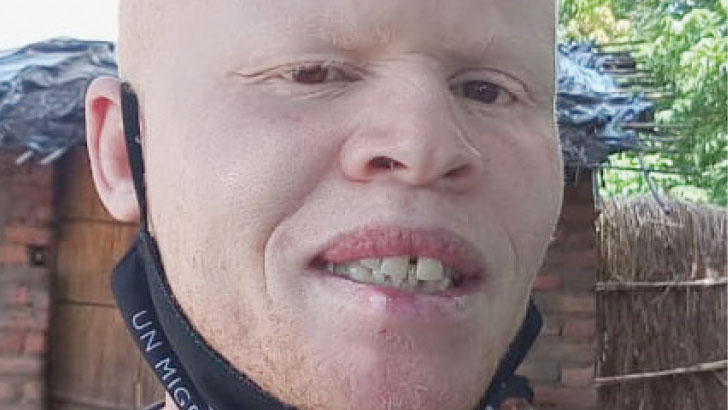2 convicted of 2018 man with albinism murder
The High Court sitting in Nkhata Bay has convicted two suspects in a case where they were accused of murdering Yasin Kwenda, a 54-year-old man with albinism, on December 31 2018.
According to the court records, the convicted are Frank Mkweni Thonje, 21, and Bonzo Chirwa, 54, both from Traditional Authority (T/A) Fukamapiri in the district.
The court records further show that High Court Judge Dorothy DeGabrielle, during the ruling on Wednesday, also acquitted two other, Gwera Banda and Peter Pola for lack of sufficient evidence and adjourned the matter to a later date for sentencing.

Kwenda was murdered by the assailants who entered his house at night through a bedroom window at Kande Trading Centre in the district. They stabbed him in the stomach and removed his intestines in full view of his then nine-year-old son.
They later chopped off his arms above the elbow joint.
Initially, seven suspects were arrested in relation to the case and were charged with murder and genocide, but some were acquitted when the court earlier delivered its ruling on whether they had a case to answer or not.
The court acquitted Francis Chipateni Kalua, Lawrence Theu Kalua and Caesar Banda after they were found with no case to answer.
Banda was represented by a private lawyer, but the rest were represented by Malawi Legal Aid Bureau.
The bureau’s director Masauko Chamkakala in an interview yesterday said as the defence team, they are waiting for the sentencing which will determine the way forward.
“But we put in much effort because as the case progressed, some were acquitted because they were found with no case to answer, two were acquitted due to lack of evidence and now we only have these two who are waiting their sentencing,” he said.
Chamkakala said they have since asked the court for a 21-day adjournment to prepare mitigation affidavits pending the sentencing.
In a separate interview, Association of Persons with Albinism in Malawi (Apam) president Ian Simbota described the ruling as a victory for justice.
He said: “As Apam, this is commendable because what we have been pushing for all along is that cases must be expedited. When cases delay, they give perpetrators a chance to interfere with evidence.
“However, we will express our full excitement once sentencing has been passed because we look at that as a deterrent measure to would-be offenders.”
On his part, Centre for Human Rights and Rehabilitation (CHRR) executive director Michael Kaiyatsa commended the court for the timely conviction.
He said: “This is good news to us as an organisation that advocates for rights of vulnerable people including persons with albinism. This also shows that the court system in Malawi is functioning as the conviction has been made within a two-year period which is commendable.”
In a joint statement issued later yesterday, signed by Kaiyatsa and Centre for the Development of People (Cedep) executive director Gift Trapence, they urged government to provide compensations and support to Kwenda’s family, especially his son, who witnessed the attack.
The statement further urged government to expedite similar cases that are not yet concluded, adding that the conviction sends a strong signal that crimes against persons with albinism will not be tolerated.
While urging police to expedite investigations into the abduction and murder of 26-year-old Saidi Dyton in Mangochi on January 27 this year, the statement has further urged police to strengthen security of persons with albinism in the country following the recent attacks.
The brutal murder of Kwenda, who worked at Kande Health Centre, attracted condemnation from various civil society organisations and the United Nations, who called on government to intensify its hunt for albino murderers countrywide and expose the alleged albino body parts syndicate.
The late Kwenda lived in Mundiyeye Village in the area of T/A Fukamapiri, but his paternal home was Mgodi Village in T/A Malanda in Nkhata Bay District.
In June 2018, Amnesty International called for an overhaul in the country’s criminal justice system to protect people with albinism.
According to the Amnesty International, cases of attacks against persons with albinism in Malawi have risen to over 163, including 22 murders between 2014 and 2020.
A 2016 Amnesty International report also established that attacks against people with albinism are fuelled by stereotypical beliefs that their body parts bring wealth and good luck.
According to the 2018 Malawi Population Housing Census, there are 134 636 persons with albinism.





